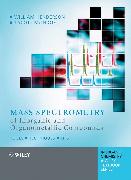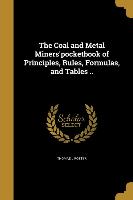- Start
- Mass Spectrometry of Inorganic and Organometallic Compounds
Mass Spectrometry of Inorganic and Organometallic Compounds
Angebote / Angebote:
This Series reflects the pivotal role of modern inorganic and physical chemistry in a whole range of emerging areas, such as materials chemistry, green chemistry and bioinorganic chemistry, as well as providing a solid grounding in established areas such as solid state chemistry, coordination chemistry, main group chemistry and physical inorganic chemistry.
Mass spectrometry is one of the many powerful instrumental techniques that are available to the inorganic, coordination or organometallic chemist. This textbook focuses on bringing the subject up to date for those synthetic chemists who use mass spectrometry as an afterthought or as a very minor component of their toolkit of characterisation techniques.
While mass spectrometry as applied to the analysis of inorganic substances has a long history, it has been the relatively recent introduction of the soft ionisation techniques of ESI (electrospray ionisation) and to a lesser extent, MALDI (Matrix Assisted Laser Desorption Ionisation) that have revolutionised the field. In parallel, major advances in instrument performance, robustness, automation, computer hardware, operating software and ease of operation and maintenance have taken place. These developments have turned mass spectrometry of inorganic and organometallic compounds on its head: once a slow, tedious technique that could be applied only to pure compounds, mass spectrometry is now at its most powerful and useful when applied to the rapid analysis of complex mixtures. This textbook aims to describe these developments and illustrate the power and scope of mass spectrometry in the characterisation of inorganic and organometallic compounds. The following are also included:
* Principles of operation of mass spectrometry
* Mass analysers
* Data interpretation
* Isotope information
Where the chapters have been divided according to the type of compound, the reader is provided with explanations and discussions of the behaviour patterns of these compounds and will be able to apply modern mass spectrometry techniques to their specialist area of chemistry.
Folgt in ca. 15 Arbeitstagen



